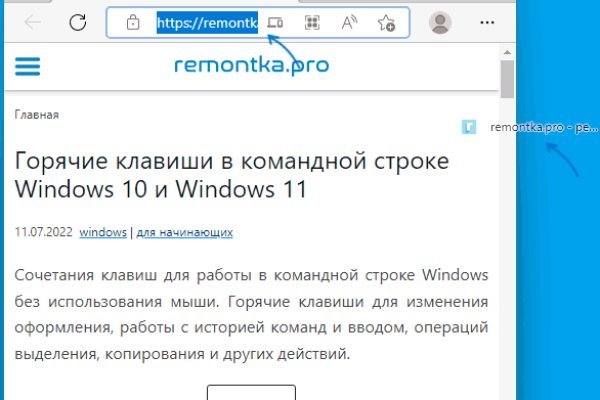Как попасть на кракен

Трейдеры обычно используют фьючерсы для хеджирования рисков. Заполнить форму регистрации. Регистрация на зеркала бирже Kraken Отметим, что при указании пароля необходимо использовать буквы, цифры и специальные символы. С первых дней Kraken придерживалась строгих внутренних стандартов тестирования и безопасности, оставаясь в закрытой бета-версии в течение двух лет перед запуском. Войти в раздел Funding. Ввод средств на Kraken Пополнить счет не платформе не составит труда. Продвинутая верификация на Kraken В случае если данных возможностей недостаточно, тогда необходимо повысить уровень пользователя путем прохождения верификации для Pro и Legend, соответственно. Торговля фьючерсами Kraken представляет собой функцию, которую не так легко найти на других ведущих криптобиржах. Ведь в таком случае каждый трейдер может выбрать подходящий уровень и предоставить ограниченный пакет документов. Официальный сайт биржи Kraken Итак, после того, как вход на сайт Kraken выполнен нажимаем на кнопку «Get started расположенную в нижней части интерфейса. На этих этапах операции измеряются в сотнях миллионах долларов США. Торги на бирже Kraken Какой именно вариант использовать зависит от уровня верификации, а, соответственно, возможностей клиента внутри сервиса. Регистрация возможна только в англоязычном интерфейсе, поэтому если страница переводится на русский или украинский язык, то по итогам ввода регистрационных данных высветится ошибка. Читайте также: Биржа Bitstamp: регистрация, настройка, отзывы, зеркало Биржа Binance: комиссия, регистрация, отзывы Биржи без верификации: ТОП-5 торговых площадок. Служба безопасности Кракена внедрила круглосуточное наблюдение за работой биржи и самого домена, таким образом контролируя и отсекая любые подозрительные операции внутри биржи. Особенно биржа любит приостанавливать работу в часы резких ценовых колебаний на рынке криптовалют. Нажать на Trade в верхней части личного счета. На главной странице торгового счета размещена информация по котировкам, торговом балансе и открытым позициям. Далее проходим капчу и нажимаем «Activate Account». Однако, с 2017 года, когда рынок криптовалют показал впечатляющий рост, Пауэлл и его команда начали работать над добавлением новых цифровых пар на платформу. Верификация на бирже Kraken На первом уровне трейдеру следует предоставить информацию, содержащую ФИО, адрес проживания, номер мобильного. К тому же Kraken не предоставляет большой выбор инструментов для работы с фиатом, в то время как переводы в криптовалюте проводятся без проблем. Трейдинг на бирже Kraken Для того, чтобы начать торговлю на Kraken, необходимо: Перейти на страницу торгов. Выбрать необходимую валюту. Вывод средств на Kraken Вывод средств будет недоступен лишь в том случае, если уровень доступа к бирже равен нулю. Рейтинг самых безопасных криптовалютных бирж Kraken хранит 95 всех активов на холодных кошельках. Однако их размер прямо зависит от количества времени, отведенного на удержание заемных средств. Регистрация на бирже Kraken Чтобы зарегистрироваться на бирже Kraken, нужно: Войти на сайт.
Как попасть на кракен - 2krn cc
Торговая платформа нацелена как на розничных инвесторов, так и на институциональных трейдеров. Поначалу биржа предлагала к торгам скудный выбор криптовалют (BTC, ETH и LTC). Торговая платформа предлагает своим клиентам всевозможные фичи: 2FA, подтверждение по электронной почте для снятия средств, глобальная блокировка времени установки, детализированные разрешения ключа API, настраиваемая учетная запись времени учетной записи, шифрование SSL. Процедура верификации на бирже Kraken Для того, чтобы пройти верификацию Kraken, необходимо: Войти в торговый счет; Нажать Verify; Выбрать уровень верификации; Заполнить необходимые данные; Подождать утверждения сервисом. Регистрация на бирже Kraken После система перенаправит пользователя на страницу, содержащую форму регистрации. Дополнительные функции на бирже Кракен Kraken это биржа с полным спектром услуг, предлагающая множество функций, которые в совокупности не предлагает ни одна другая биржа. Для фиатных операций пользователю придется получить одобрение сервиса на следующем уровне верификации. В зависимости от потребностей трейдера, Kraken предлагает три способа проведения торгов: Simple. Все зависит, в первую очередь, от потребностей и ожиданий клиента. Чтобы повысить уровень и получить доступ к выводу средств, необходимо нажать на кнопку Increase funding limits внизу интерфейса страницы. Комиссии на своп торги на бирже Kraken Отметим, что при торговле в паре со стейблкоинами комиссии будут куда более привлекательными, нежели в паре с фиатом. После того, как Kraken рассмотрит заявку и подтвердит данные, можно пополнять счет и приступать к торгам. Так, пользователи жалуются на сложность поэтапной верификации и на некомпетентность сотрудников службы поддержки. Негативный отзыв о Kraken В последний раз подобный отказ в работе сервиса был зафиксирован летом 2019 года: Однако далеко не всем даже удается приступить к торгам на данной платформе. Дополнительным преимуществом станет OTC торговля. А также увеличит дневные лимиты на вывод в криптовалюте до 500000 и в фиате до 100000. Торговая платформа Kraken предлагает опцию маржинальной торговли с кредитным плечом Х5, профессиональным торговым интерфейсом, продвинутым API и высокими лимитами займов при низких комиссиях. Комиссии на торги в даркпуле биржи Kraken При использовании данной функции, максимальная комиссия составляет 0,36, а минимальная 0,20 в зависимости от объема торгов. Однако, если пользователь не является профессиональным трейдером, то, вероятнее всего, уровня Intermediate будет достаточно для ведения торгов. Что еще немаловажно, так это то, что информация о стране должна соответствовать реальному месту жительства. Поэтому нужно учитывать, что каждые 4 часа этот процент будет расти. На данном уровне система откроет возможность проведения операций с фиатными валютами. Указать действие (Buy/Sell). Негативный отзыв о Kraken Так, согласно отзыву пользователя биржи, ее низкая популярность может быть связана с заниженными курсами котировок по сравнению с другими платформами. Существует несколько уровней верификации: Starter. К тому же не факт, что такие усилия вообще будут успешными. При использовании VPN определение геолокации системой может быть неверным, поэтому уделяем особое внимание этому моменту, так как в дальнейшем при указании неверной информации, пользователь может получить отказ на этапе верификации. Покупка Kraken OTC платформы Circle в декабре 2019 открыла перед клиентами биржи возможность совершать сделки с более высокой ликвидностью и более узкими спредами,. Положительный отзыв о Kraken И конечно же, отмечаются преимущества дополнительных функций, поддерживаемых биржей с возможностью проводить разносторонние операции внутри одной платформы. Отметим, что проведение операций возможно только в криптовалюте.

Поэтому если пользователь лично не раскроет свои данные, на взлом аккаунта у мошенника уйдет немало времени и сил. То есть, чем больше сумма сделки тем меньше комиссия. Биржа напрямую конкурирует с BitMex, бесспорным лидером маржинальной и фьючерсной торговли, но, учитывая хорошую репутацию Kraken, многие трейдеры склоняются в сторону данной платформы. Если с логином и паролем все ясно, то непосредственно ключ будет отправлен системой на привязанную к аккаунту электронную почту. В рейтинге агентства icorating, Kraken занимает первое место, получив высшие оценки в области безопасности учетных записей пользователей, веб-безопасности, предотвращения DoS-атак и безопасности доменов. Регистрация на бирже Kraken По мере введения этих данных регистрация считается пройденной, а пользователь может приступить к знакомству с личным кабинетом биржевого счета. Личный кабинет на бирже Kraken Для того, чтобы пополнить счет на Kraken, необходимо: Войти в личный кабинет. Комиссии на маржинальную торговлю на бирже Kraken Наиболее высокие комиссии взимаются со сделок, проведенных в даркпуле биржи. а также предлагает торги в парах с фиатными валютами (EUR, USD, CAD, GPB.д.). Подтвердить операцию. Подробнее о процессе торговли на Кракен смотрите в видео ниже: Как торговать на Kraken Как вывести и завести средства на Kraken Как уже отмечалось выше, функции ввода и вывода доступны не всем клиентам Kraken. Все это, в сочетании с непревзойденным рейтингом безопасности Kraken делает биржу уникальной. Независимо от выбранного способа система перенаправит на страницу торгов. Уровень безопасности на бирже Кракен Кракен лидирует с точки зрения безопасности. Нейтральный отзыв о Kraken Еще пользователи жалуются на нередкие сбои в системе работы Кракен. Негативный отзыв о Kraken Но в то же время, другим, наоборот, поэтапная система верификации пришлась по душе. В окне котировок нажать на BUY напротив необходимой к покупке криптовалюте. Нажать напротив нее Withdraw. Здесь заполняем все поля, соглашаемся с политикой конфиденциальности, проходим капчу и нажимаем «Create account». Kraken беспрерывно развивается в создании удобства использования OTC торгов. Провести сделку. На сегодня Kraken охватывает более 20 криптовалют (. BTC, ETH, EOS, ADA, XRP, BCH.д.